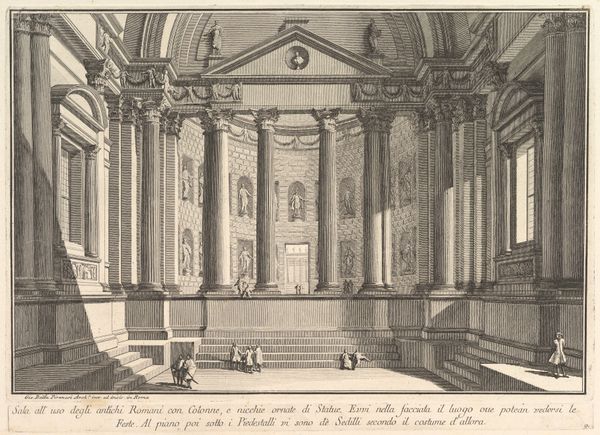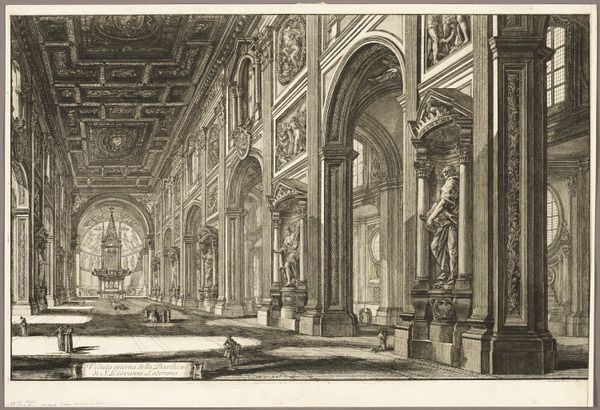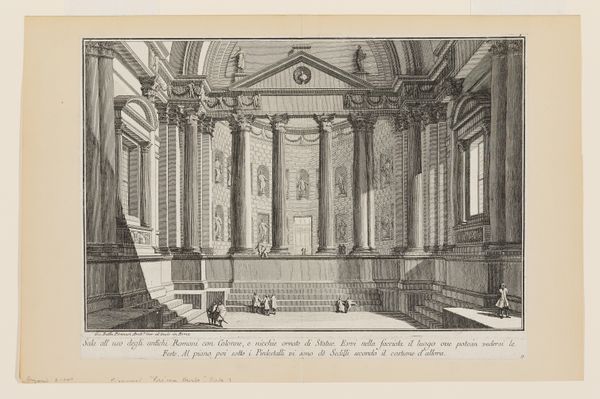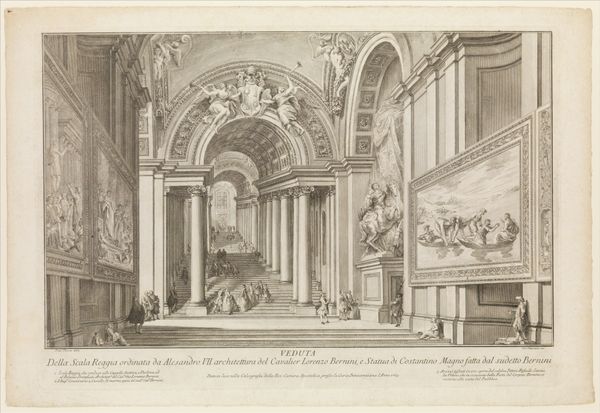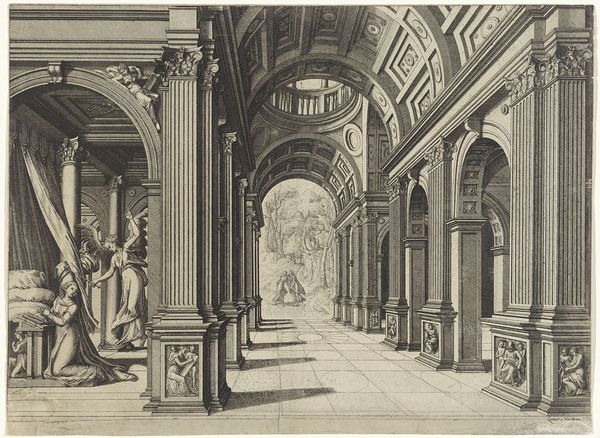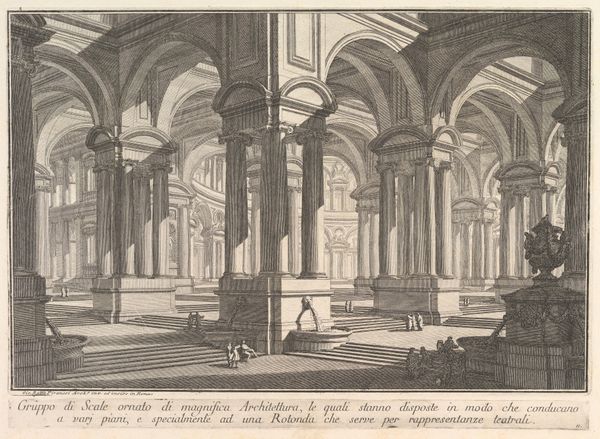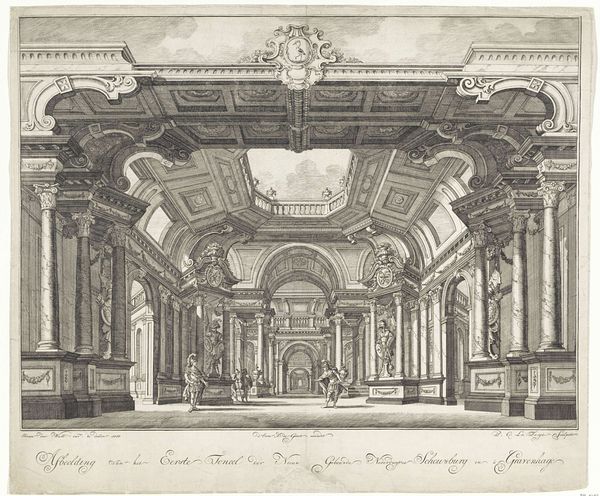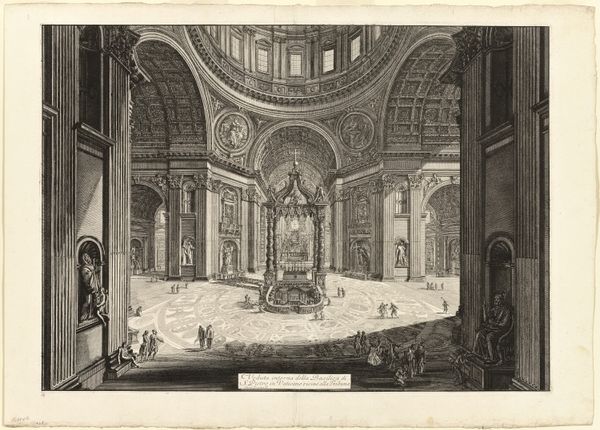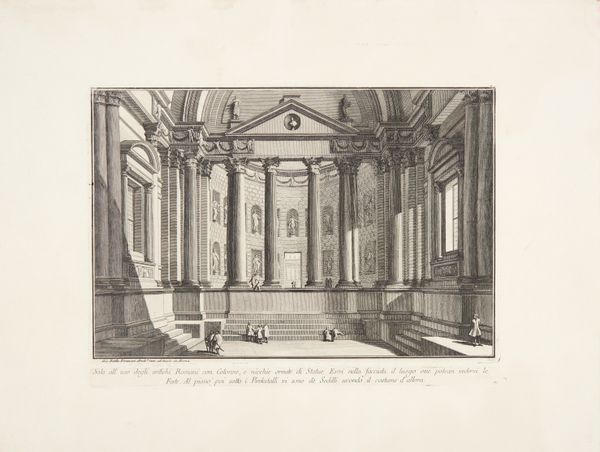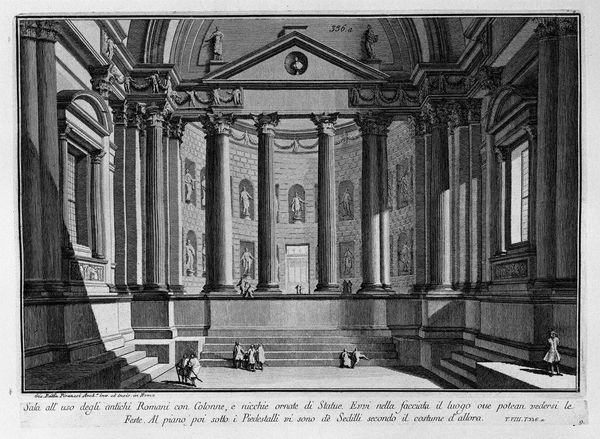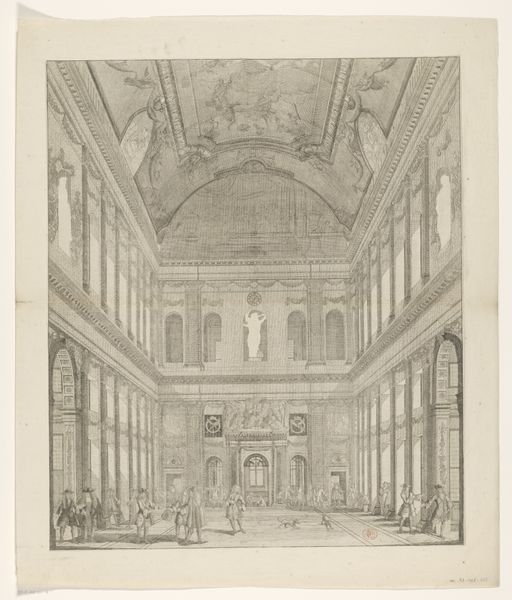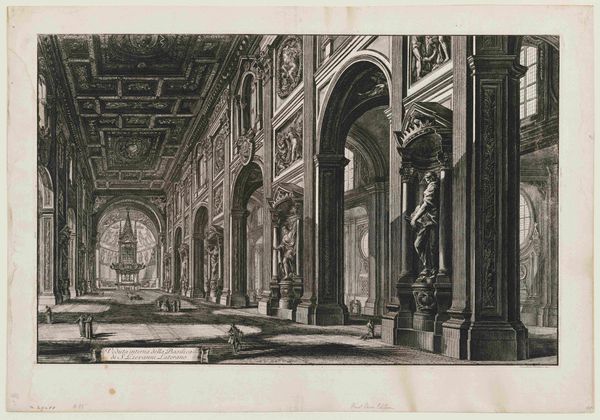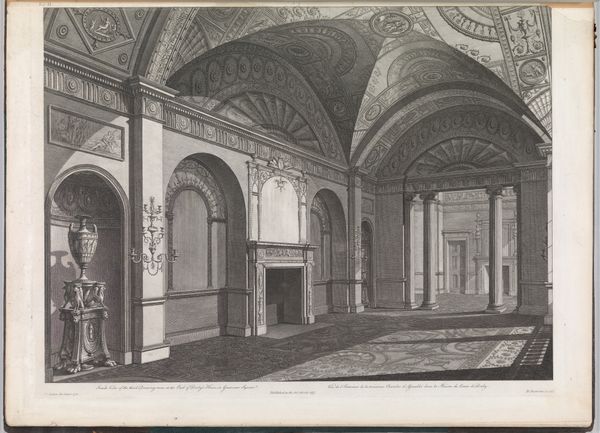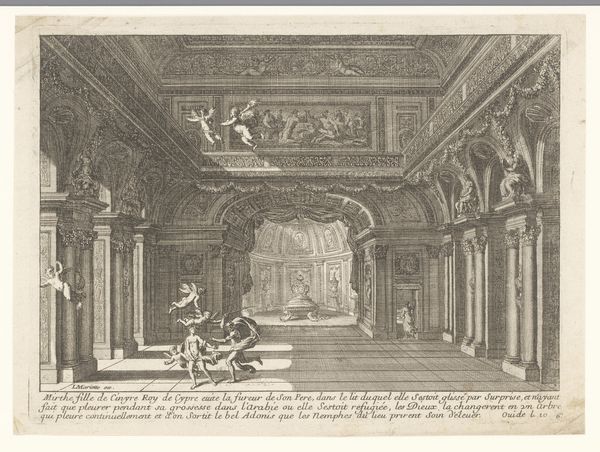
Vestibule of an ancient temple... (Vestibolo d'antico Tempio...), from "Prima Parte di Architettura, e Prospettive" 1738 - 1755
0:00
0:00
drawing, print, etching, engraving, architecture
#
drawing
#
baroque
# print
#
etching
#
perspective
#
geometric
#
ancient-mediterranean
#
line
#
history-painting
#
engraving
#
architecture
Dimensions: Plate (Image): 9 3/8 × 14 in. (23.8 × 35.5 cm) Plate (Inscription): 3/4 × 14 in. (1.9 × 35.5 cm) Sheet: 13 1/4 × 19 7/16 in. (33.7 × 49.4 cm)
Copyright: Public Domain
Giovanni Battista Piranesi created this etching, "Vestibule of an ancient temple," in 18th century Italy as part of his series "Prima Parte di Architettura, e Prospettive". Piranesi was a master of architectural representation. Through dramatic light and shadow, Piranesi creates a theatrical space, exaggerating the scale and grandeur of Roman architecture. The tiny figures underscore the immensity of the space, emphasizing the power of the Roman Empire. This print reflects the 18th-century obsession with antiquity and the rise of Neoclassicism. Piranesi's work was not just documentation; his prints influenced the architectural tastes of his time, shaping the way people perceived and imagined ancient Rome. His works found their way into the collections of architects and tastemakers, fueling the Neoclassical movement. To understand Piranesi fully, we need to delve into the cultural and institutional history of 18th-century Europe. Researching the Grand Tour, the rediscovery of classical texts, and the patronage systems of the era can reveal the social context that shaped his artistic vision.
Comments
No comments
Be the first to comment and join the conversation on the ultimate creative platform.
